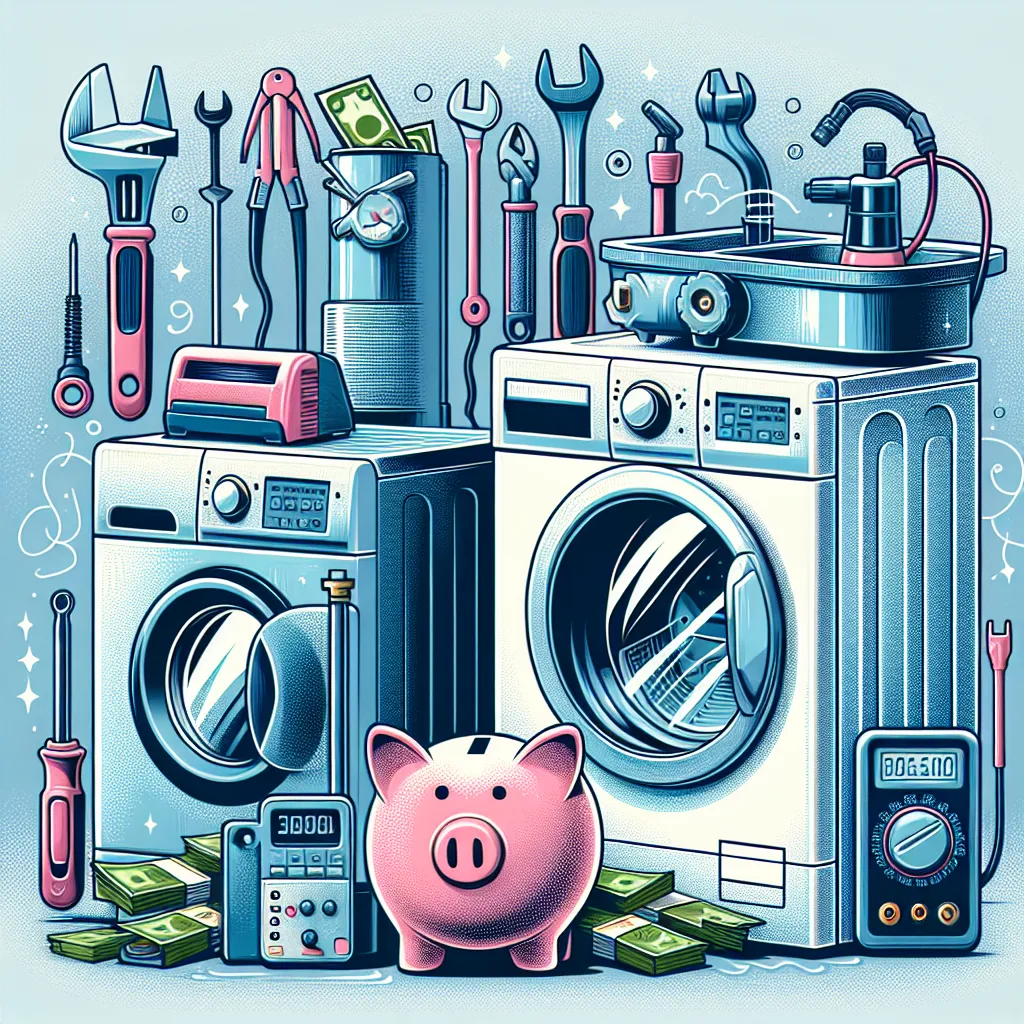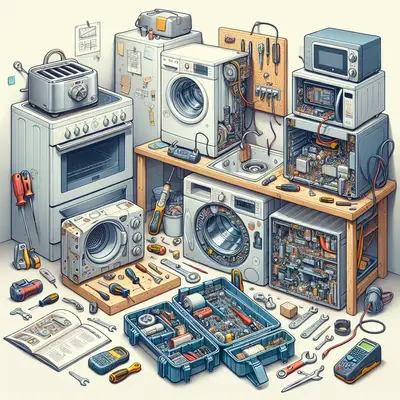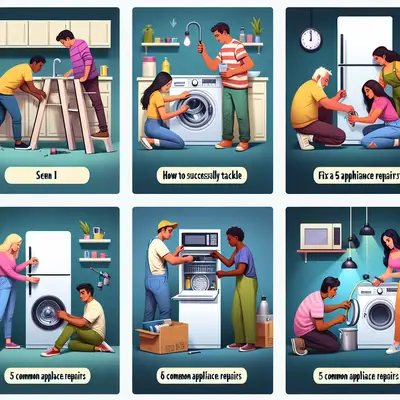Who doesn't love a little DIY project, especially when it saves you a pretty penny? In this article, we'll take you through five essential repair tricks for common household appliances. No need for costly professional services when you can handle the problem yourself!
Remember, safety first. Always unplug your appliances before starting any repair work. Ready? Let's dive in.
Trick 1: Fixing a Leaky Refrigerator
A leaky refrigerator can cause a mess and lead to increased energy consumption. Often, this issue arises from a blocked defrost drain or a clogged or frozen water supply line. Carefully use a hairdryer to thaw the ice, then clean the drain or line thoroughly using warm water and vinegar.
Trick 2: Unclogging a Dishwasher
A dishwasher not draining properly is usually due to food debris blocking the drain. First, remove the bottom rack for easy access. Then, inspect the drain area and remove any visible debris. Use a plunger to dislodge any remaining blockage. Finally, run a rinse cycle to ensure smooth operation.
Trick 3: Repairing a Noisy Dryer
A noisy dryer can be a symptom of worn-out drum bearings or a damaged belt. Inspect these parts and replace them if needed. Remember, your dryer's manual is your best friend in this process. Always refer to it for part numbers and detailed instructions.
Trick 4: Restoring a Non-Heating Oven
If your oven isn't heating up, it's likely due to a faulty heating element or a broken igniter. Both of these parts are relatively easy to replace. Make sure you purchase the correct replacement part for your specific oven model.
Trick 5: Reviving a Broken Blender
If your blender isn't working, it might be due to a worn-out motor or a broken drive socket. Inspect these parts and order replacements if necessary. Don't forget to unplug the blender before starting your repair work.
Conclusion
Repairing your own appliances not only saves you money but also extends the life of your appliances and reduces waste. Remember, all appliances are different. Always refer to your appliance's user manual for specific instructions and safety guidelines. Happy repairing!



